Welcome back, everyone! I’m glad you’re here. It’s been a great week – I got my computer data recovered (Yay! See last week’s post to see the drama with that.) I’m going to a conference on Integrative Women’s Health next week, and it’s time for the next Tea Talk. We’re going to be talking about Food As Medicine Part 2: Plant Based Living. I’m getting ready and it’s coming together. I’ve been baking some healthy goodies for my attendees and have been writing the talk, and before we know it, September 23rd will be here!
So in honor of our topic for the Tea Talk, I’m sharing one of my favorite vegetarian dishes this week. It’s not vegan, because it contains eggs, but I’ve adjusted the recipe to be low-gluten so my gluten sensitive baby can eat the pancakes. What do I mean “low-gluten”? Let me explain…
A while back, I wrote about using food to help heal my youngest daughter’s eczema in my Food As Medicine post. I found that when I eliminated gluten from her diet, her eczema cleared up dramatically. The problem was, a much of the gluten free prepared breads, crackers, etc are not organic. Why not just stop feeding her bread and crackers then, right? Well, she’s four. It’s been a fairly easy sell to get her opt out of anything that’s not gluten free (she doesn’t like being itchy!), but if I tell her she can’t have sandwiches or an occasional cookie while her siblings are eating them, that’s just not going to go over well. She’s four! I know it could be done, but I’m not there yet.
And then I learned about einkorn wheat.
I started reading about how our modern wheat is cultivated to have more copies of its normal chromosomes per cell. This isn’t the same thing as GMO (genetically modified organism) crops; it’s how the wheat was grown over the years. To make it simple, the genes in the chromosomes direct protein production, and gluten is a mixture of two proteins that help make the elastic structure of bread. It’s what makes it light and springy! Modern wheat has six copies of chromosomes per cell, unlike the ancient einkorn wheat that has only two copies per cell (same as our human cells).
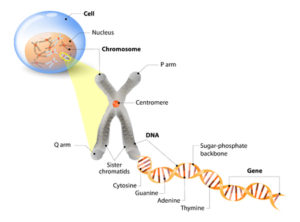
Because there are fewer copies of the genes that produce the proteins for gluten, einkorn wheat has lower gluten content than modern wheat. For someone who has a true gluten allergy (celiac disease), this isn’t an acceptable option. But for people like my baby girl who are sensitive to gluten, einkorn wheat is much better tolerated. My daughter has no reaction when she eats einkorn wheat products, as opposed to the immediate misery she experiences when she eats modern wheat. Some people who have brain fog, bloating, gassiness, and inflammatory responses to modern wheat do not have this reaction to einkorn.
Ok, enough of the science. Let’s get to the recipe! I’ve amended this recipe from Smitten Kitchen‘s Japanese Pancakes recipe. Let me tell you, that woman can cook! She’s got some wonderful recipes and I’ve tried many. It’s not a “healthy food” site, but if her site gets you cooking more, I’m all for it. Gotta start somewhere!
Low Gluten Asian Vegetable Pancakes
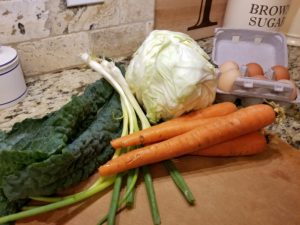
Yield: 4 large pancakes or 12 small ones
Pancakes
1/2 small head cabbage, very thinly sliced (1 pound or 5 to 6 cups shreds) – a mandolin is useful for this
4 medium carrots, peeled into ribbons with a vegetable peeler – shredded carrots don’t hold together as well in the pancakes
5 lacinato kale leaves, ribs removed, leaves cut into thin ribbons
4 scallions, thinly sliced on an angle
1 teaspoon kosher salt
1/2 cup all purpose einkorn flour (you could use regular or gluten free all purpose if you want)
6 large eggs, lightly beaten
Olive oil for frying (coconut oil might be good too!)
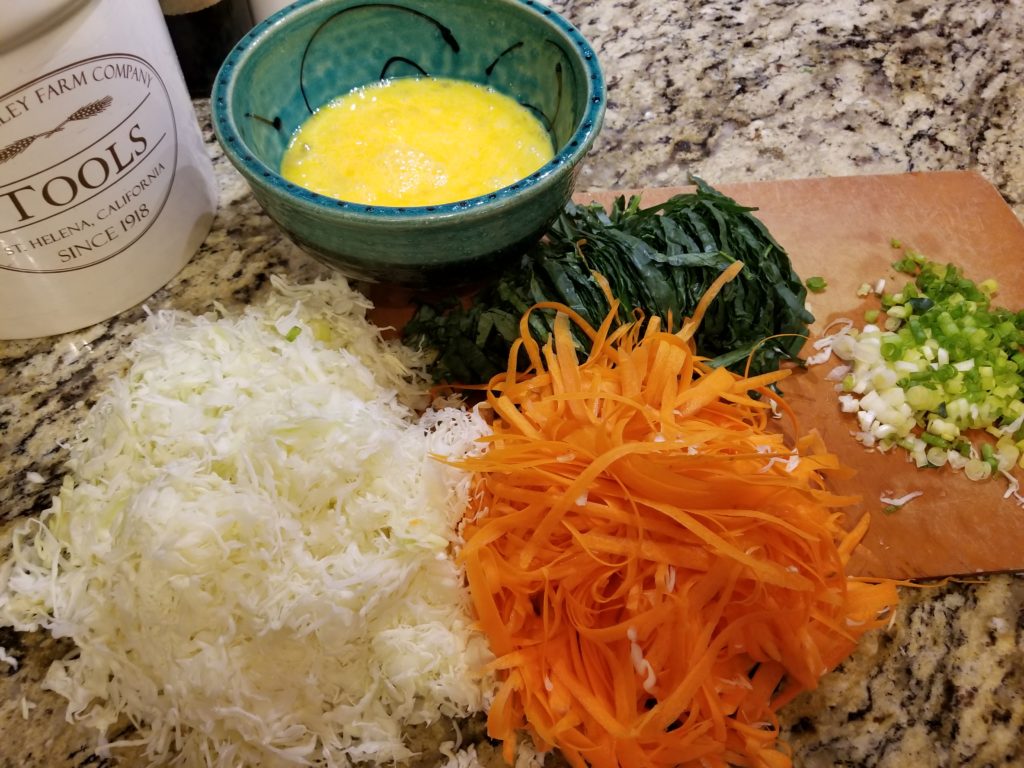
Dipping Sauce
2 tbsp hoisin (or omit if gluten free)
2 tbsp ketchup
1 tsp tamari
1 tsp to 1 tbsp toasted sesame oil
1 tsp rice wine vinegar or rice cooking wine
1 tsp dijon mustard
Adjust to taste
Make the pancakes:
Combine your veggies in a large bowl. Toss with flour thoroughly, then add the eggs and mix well. Heat your oil in a large heavy skillet. When the oil is ready, grab small piles of the veggies mix with tongs or your fingers and place them in the pan. Flatten the pancakes with your spatula and flip when one side is golden brown and crispy. You can keep these warm in the oven at 200 degrees until you’re ready to serve.
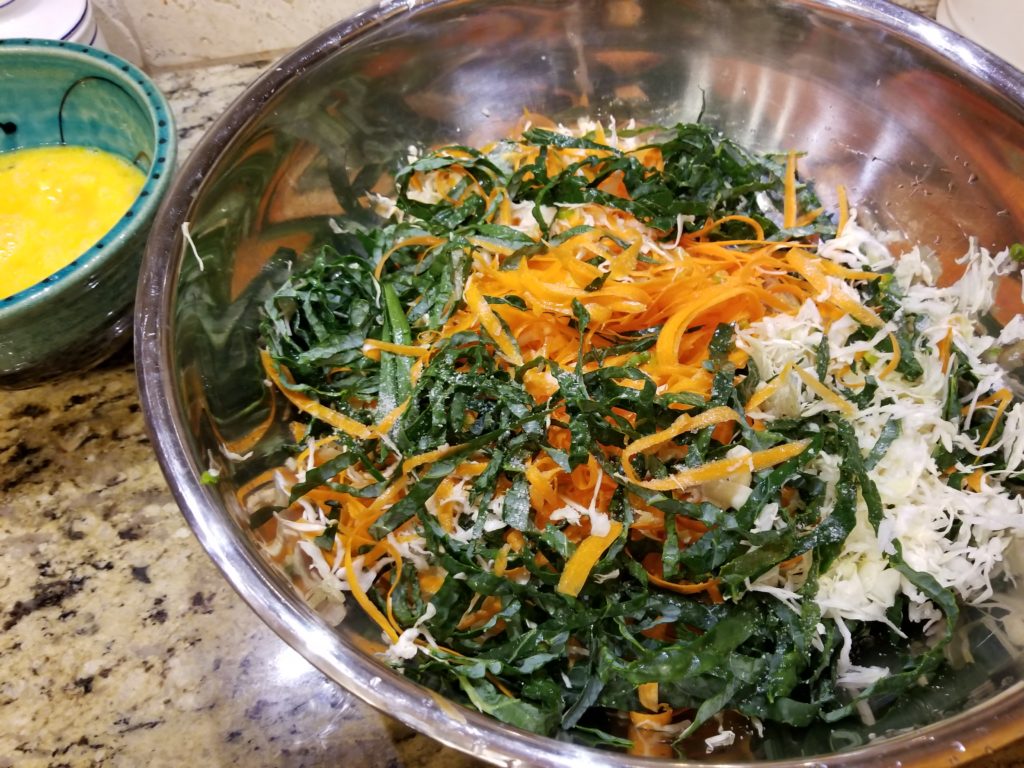
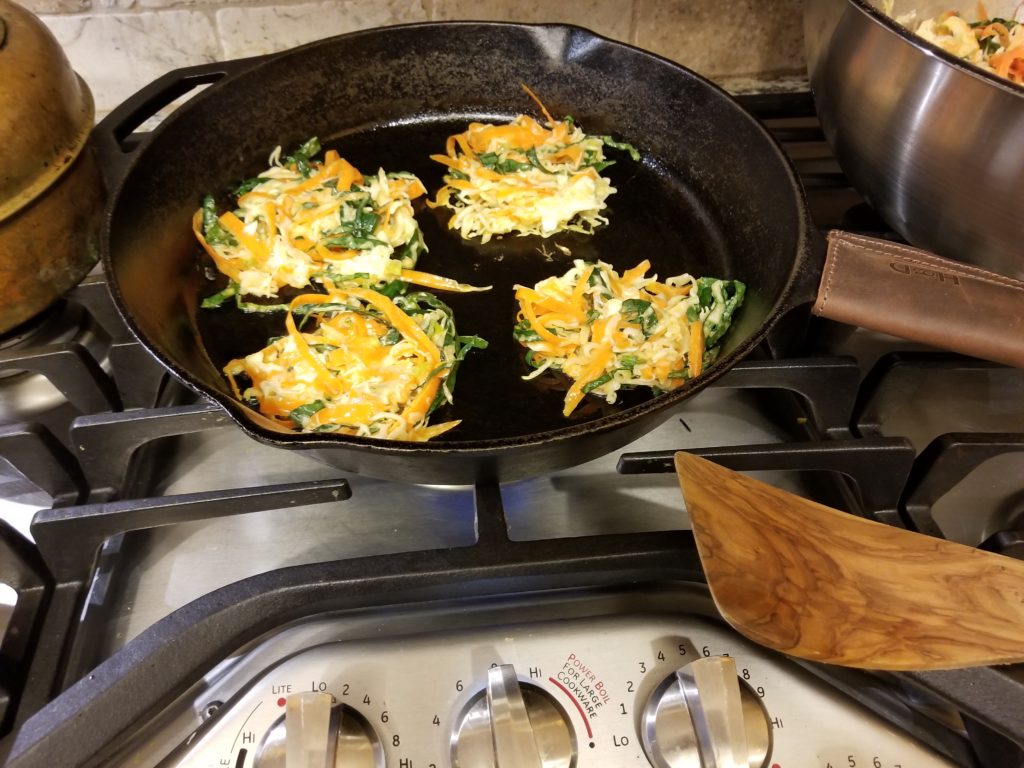
Make the sauce:
Stir together the sauce ingredients and drizzle over the pancakes to serve. Scatter the sesame seeds on top and voila! Yumminess is served! You can eat this as a side dish or as a main dish over brown rice or your favorite grain. You could even make it a bowl and put rice on the bottom, shredded green leaf lettuce and sliced avocado and a little miso dressing with the pancake on top. I might eat that tonight!
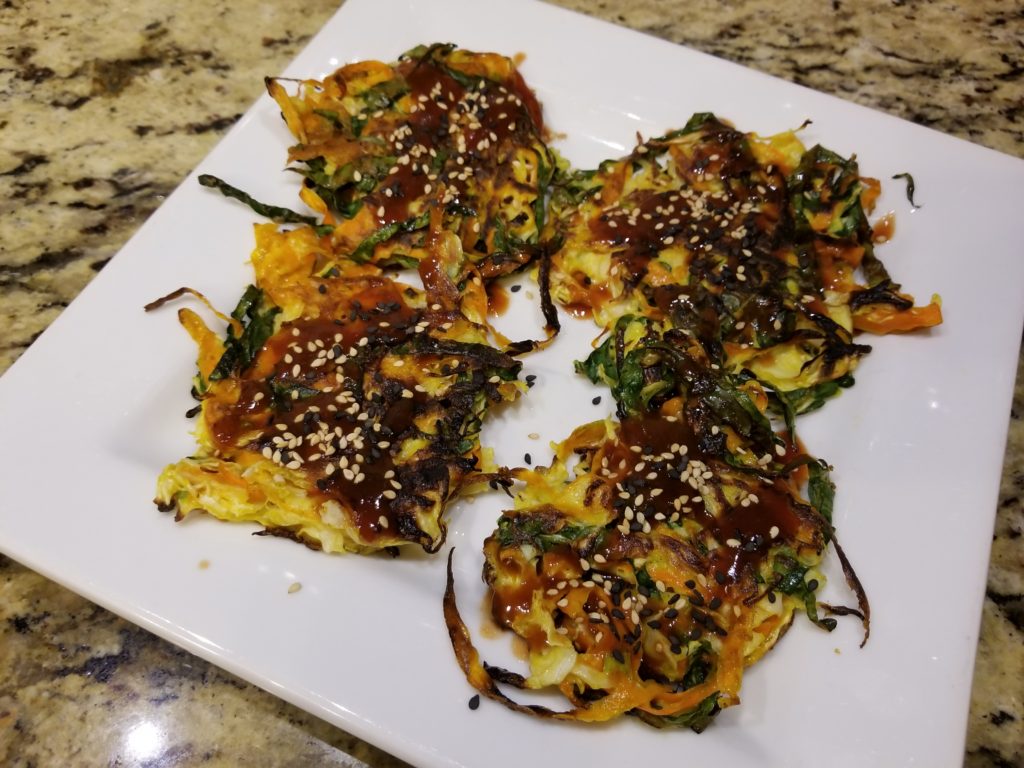
When I made these tonight, my middle girl came into the kitchen and her eyes got SO big – she remembered the last time I made them and said, “Yum, veggie pancakes!” They were so good!
Come see me at the Tea Talk on September 23rd! Go to:
https://www.eventbrite.com/e/tea-talk-food-as-medicine-part-2-tickets-37021974723 to get your spot!
